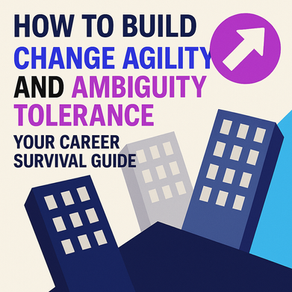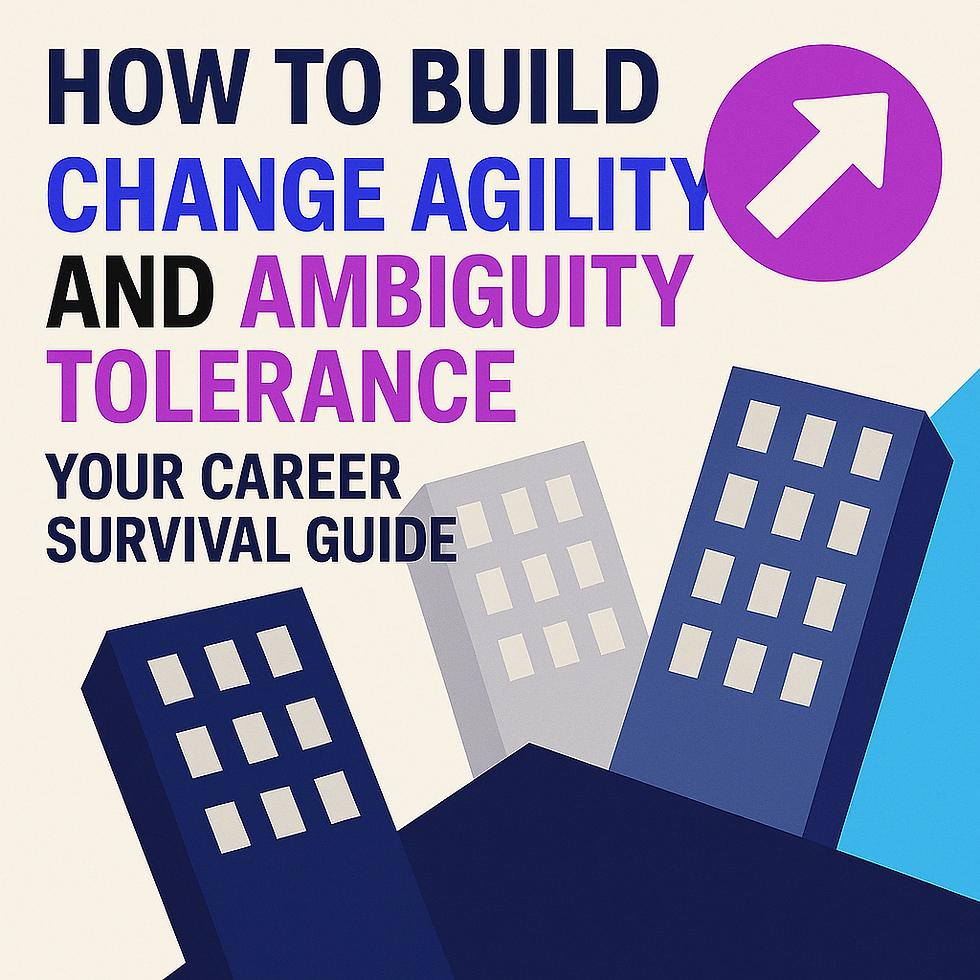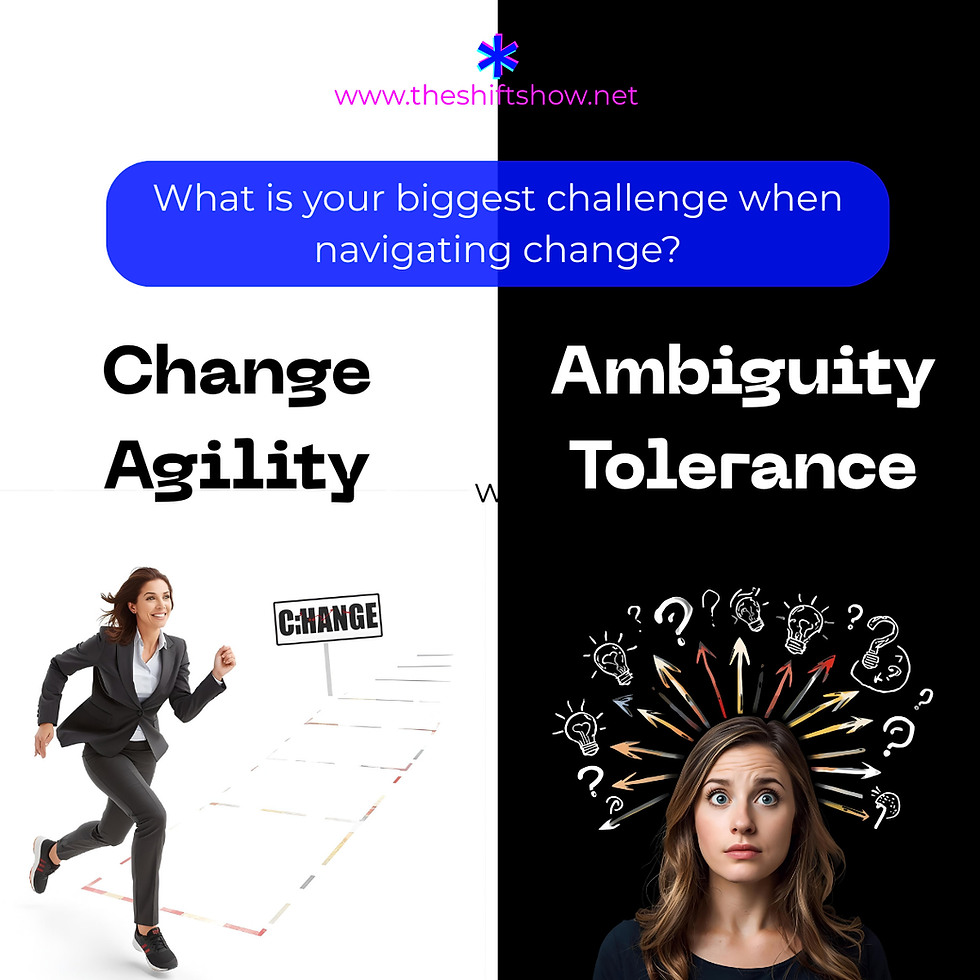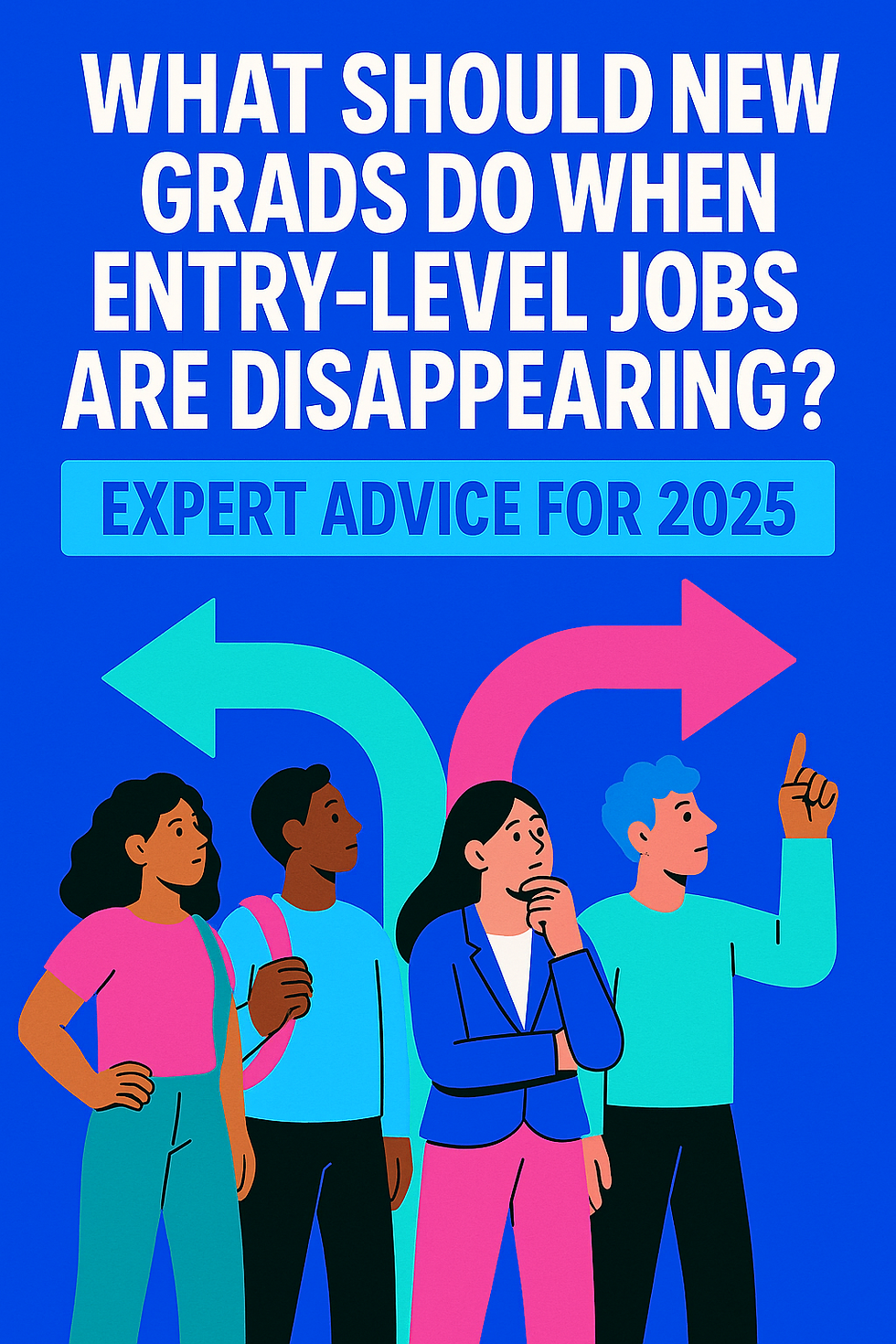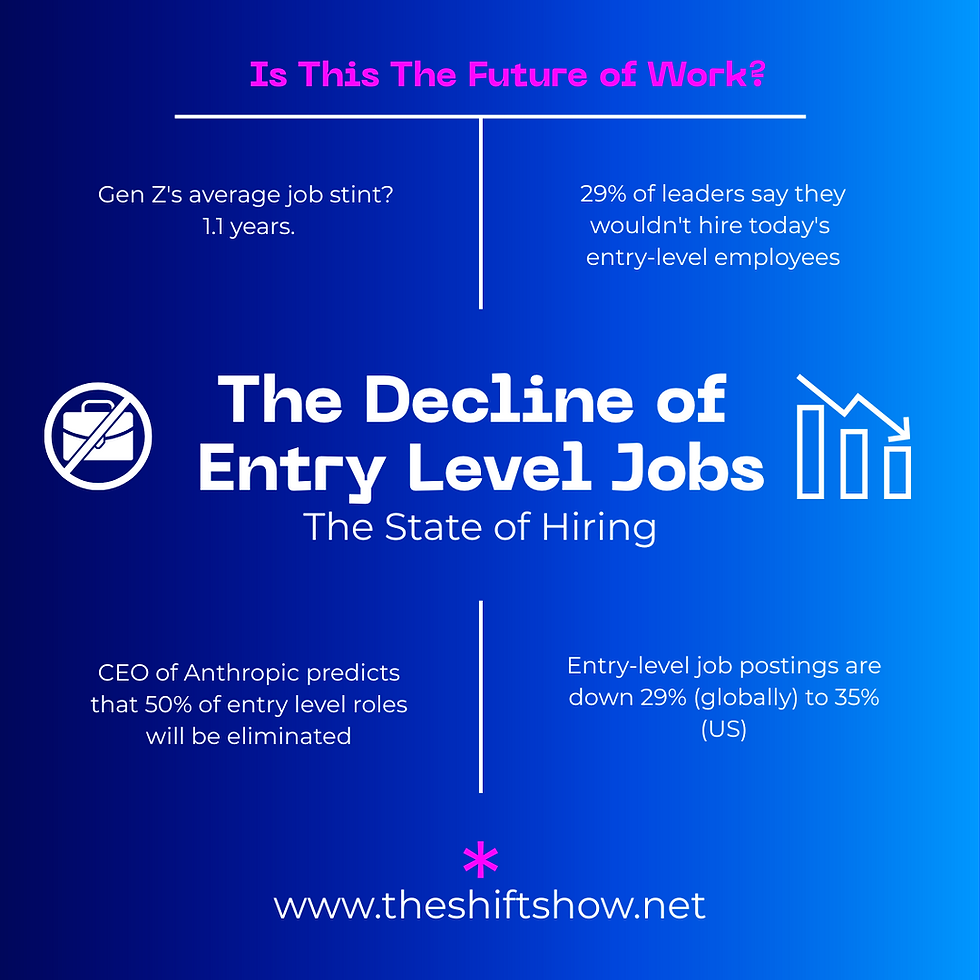- Rachel Bourne
- Oct 14, 2025
- 8 min read

My son said something the other day that stopped me cold. He asked, "Mom, why do you keep learning new things even when you’re already good at your job?" The truth? I realized it’s because I just don't think I can (or should) stand still...and neither should you.
In a VUCA disrupted world, our ability to navigate change is incredibly important and I continue to think about how I can help others do this well. I’ve spent almost 20 years navigating career twists and turns, from licensed architect to global talent executive. I’ve learned that skills are the only truly portable asset you can count on. No one’s coming to help you or just give you a job because you work hard (though, that helps).
Here’s what they didn’t see when I worked on leveling up or moving to HR: the late nights of agile learning, the doubt when I got criticism, the intentional experiments to test a new theory, the late nights I racked up while designing leadership development programs while my son slept. Here’s the truth: growth is messy, vulnerable, and absolutely doable.
How to Boost Career Growth in a Rapidly Changing World
Career growth isn’t a straight line. It’s more like a zigzag through unknown territory. When I transitioned from architecture to HR, I had to rethink everything I knew about work. The skills I built as a designer (problem-solving, systems thinking, creativity) became my secret weapons in talent transformation.
In a highly competitive job environment, where the world dynamics are pretty extreme, we can’t just wait for opportunities to come knocking. You have to build your own door.
That means:
Being strategic with intentionality: Just working hard and waiting for a tap on the shoulder is the worst career strategy ever. What is coming where you can have an opportunity? Where do you want to go? When?
Researching those that do it well: We make a lot of assumptions when looking from the outside, in. Talk to people that do the work today and understand what they like, what they don't, and the skills they think make the best stand out.
Investing in skills that matter: There will always be some core skills, many of which I cover on The Shift Show. New skills like AI literacy, old school "soft skills" like emotional intelligence, and the one that I think is most critical? Adaptability.
Building a network that supports you: not just contacts, but real relationships. Who will you call when things hit the fan? Who will mentor you? Who is that trusted person who will give you the feedback you can actually hear? These days, just relying on your manager is top of "what not to do" but never underestimate that working for the best and most influential leader will not be a bad idea.
Being willing to pivot: sometimes sideways, sometimes backward, to move forward. I've seen too many people get hung up on chasing the promotion or title. The data continue to show that those who chase skills go further and faster than those that chase promotions.

I remember spending 3 hours one Sunday afternoon just mapping out my skills and gaps using a checkerboard career map. It can feel overwhelming, but it was the best investment I made that year. If you want to boost your career growth, start by knowing exactly where you stand, where you want to be, and planning the path to get you there.
What are the 5 steps of career development?
Career development can feel like a buzzword, but it’s really a practical process. Here’s how I break it down, based on my own journey and what I teach on The Shift Show:
Self-Assessment
Understand your strengths, weaknesses, and passions. Some affordable, accessible and validated assessments (that you don't need a coach to debrief) will help you build awareness include Gallup StrengthsFinders, the DISC Assessment or this one with a manager spin. I haven't taken this one but it's supposed to be pretty insightful on the "Big 5" personality traits, and you don't need a certified coach to debrief you. If you want to get into full aptitude assessments, Johnson O'Connor offers one of the most comprehensive. My other favorite way to understand more objectively is to actively ask for feedback from colleagues to get honest insights. Try asking them for just "one piece of feedback" if they are uncomfortable. Another method could be making the feedback less threatening, Ask them why you're friends or "What is the one piece of advice that I need?". The more objective self-awareness you have about how others see you, the easier it will be to build the most accurate strategies.
Goal Setting
Define clear, achievable goals. Mine included mastering AI concepts, building an amazing network in the industry, and leaning into things I'd been drawn to for years (like Podcasting!) but I had prioritized other things because I was uncomfortable. This is a more corporate approach but I still love to use it for personal goal setting. Use the SMART framework: Ensure your goals are Specific, Measurable, Attainable, Relevant, and Time-bound. What does that mean?
Specific: Clearly define what you want to accomplish.
Measurable: Include quantifiable indicators to track your progress.
Attainable: Set realistic objectives that you can actually achieve.
Relevant: Make sure the goal aligns with your values and long-term aspirations.
Time-bound: Set a firm deadline for accountability.
Write your goals down too! Getting your goal out of your head and onto paper can make it feel more tangible and real. And don’t be afraid to Break them down: Divide large, long-term goals into smaller, more manageable tasks to make them less intimidating
Skill Building
Invest in learning. I took courses, read voraciously, and even joined the Human-Centric AI Council to stay ahead (bonus points if your skills come with amazing communities like this one!). You don’t always need a budget to build skills either but if you want something paid, be sure to check what your personal development budget is at work.
You really only need curiosity and consistency. I made it a habit to invest in my own learning through free or low-cost channels: enrolling in open online courses, reading voraciously across disciplines, following thought leaders on LinkedIn and YouTube, and joining professional communities like the Human-Centric AI Council. There is more free education available to you today than there ever has been (including from Universities and the Ivy Leagues). Every article, podcast, and peer conversation became part of my personal curriculum. The key is to stay relentlessly curious and make learning a daily practice, not a line item.
Networking
Build relationships that open doors. Strong networks don’t just happen — they’re built intentionally through curiosity, mutual support, and generosity. Proactively help others when they need it, referrals, a comment for reach on a job search, an email introduction! I made it a priority to reach out to mentors, peers, and even people outside my industry who challenged my assumptions and expanded my perspective. Many of those relationships started with a simple message or a shared article, but they grew through consistent follow-up and a genuine interest in learning from others. The best opportunities often come not from who you know, but from the people who know what you care about and trust your voice.
Reflection and Adjustment
Just like companies run annual planning cycles, you need a personal version for your own growth. Too often we set goals once and never revisit them. I’ve learned to treat my career like a living strategy... something to measure, refine, and realign as I evolve. Every quarter, I schedule a check-in with myself to review what’s working, what’s not, and where I need to pivot. It’s not about perfection; it’s about staying intentional and making sure your daily work still matches your bigger vision.
This framework isn’t just theory. It’s what helped me move from architecture to HR leadership without losing my mind (too much). And it can work for you too.

Overcoming the Fear of Change and AI Anxiety
Let’s be real: AI is shaking up the workplace. I get questions all the time on The Shift Show about whether AI will replace jobs or make us obsolete. Here’s my real answer: AI is a tool, not a threat, if you know how to use it. It's been said time and again, "AI won't take your job, but someone who uses it, will."
I won’t sugarcoat it. The fear of being left behind is real.
I’ve felt it myself.
When I first started the podcast, I spent hours wrestling with imposter syndrome and I was incredibly uncomfortable being "vulnerable on the internet", putting my face out there AND being on camera. Only six months in, I can see growth over each episode and I'm so much more comfortable now.
But here’s the secret: embracing success means embracing lifelong learning, and that's going to be especially true in the AI era.
To boost your career growth in this AI era:
Learn the basics of AI relevant to your field. You don’t need to be a coder, but understanding AI’s impact is crucial.
Focus on uniquely human skills like empathy, creativity, and complex problem-solving.
Experiment with AI tools to enhance your productivity, not replace your judgment.
Remember, AI can amplify your skills, not erase them. The key is to stay curious and adaptable.
Building Authentic Leadership Through Vulnerability
Leadership isn’t about having all the answers. It’s about showing up as your real self, even when that means admitting you don’t know everything. I’ve learned this the hard way.
Once I got promoted to Director, I tried to project confidence at all costs. Spoiler: it backfired. I have always received feedback that I was intimidating but this made it worse! and worse yet, as someone who genuinely wanted to be accessible, people were afraid to give me feedback and tell me what they thought.
When I started sharing my struggles, like balancing work and family, my fertility journey, or asking directly for advise, people connected with me more deeply. Sometimes they'd call me for help to talk through a mutual struggle. Sometimes, they'd refer their friends to me. And they always wanted to help me and my team.
Here’s what I recommend if you want to boost your career growth through leadership:
Be transparent about your challenges. It builds trust but know there is an art to this which I'll expand on more in a future blog post.
Ask for help when you need it. No one expects you to do it alone.
Celebrate small wins. Growth is a series of tiny steps, not giant leaps.
Leadership is a skill you develop over time. It’s messy, imperfect, and deeply human.
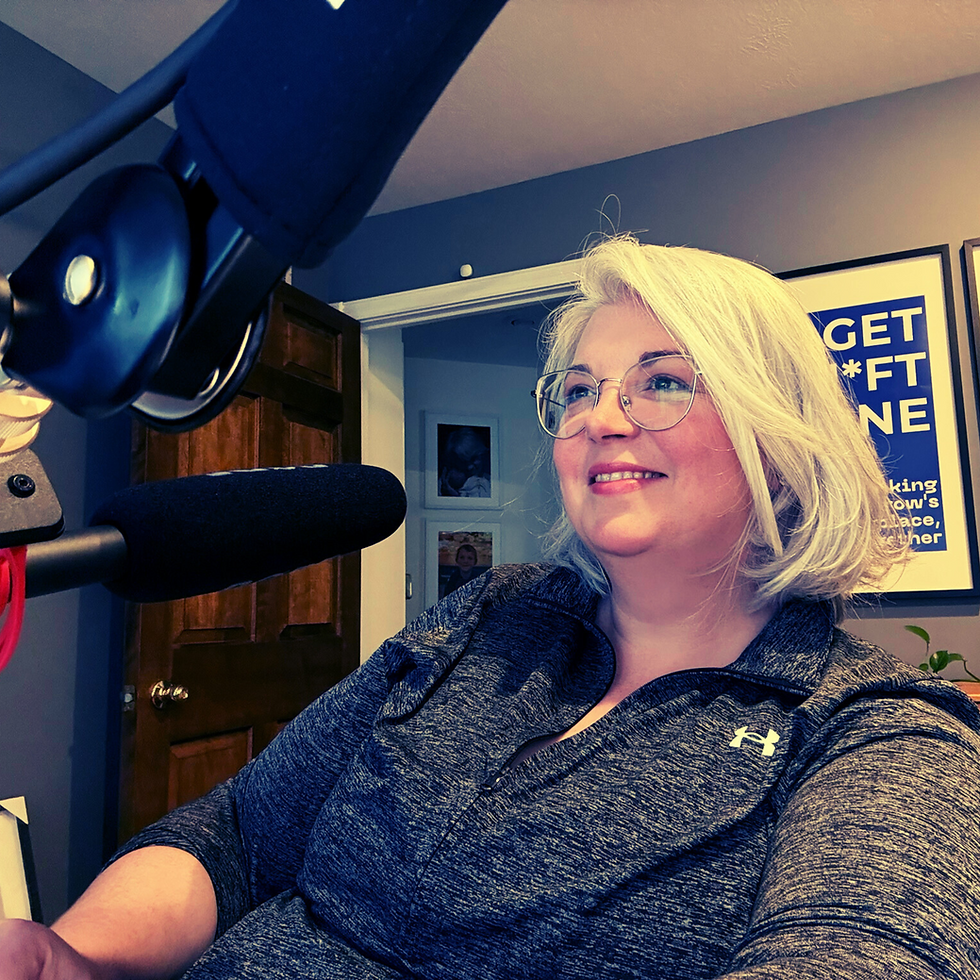
Your Next Steps: Take Control of Your Career Growth Today
If you’ve read this far, you’re ready for action. Here’s my challenge to you:
Spend 30 minutes this week doing a skills inventory. What can you do well? What do you want to learn?
Reach out to one person in your network for a real conversation about growth.
Pick one AI tool or concept to explore—no pressure, just curiosity.
And if you want to dive deeper into practical strategies for career growth, check out new episodes of The Shift Show. It’s where I share stories, struggles, and solutions with a community of professionals just like you.
Remember, your career is your most important project. Treat it with care, courage, and a little bit of humor. You’ve got this 💪👇✨
What’s one skill you’re committing to learn this month? Drop a comment or share your story, I’d love to hear from you!



